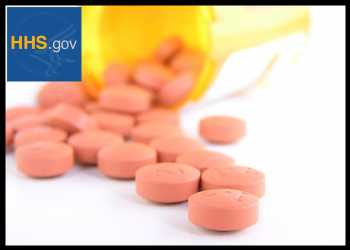HHS Names 27 Prescription Drugs Subject To Medicare Drug Price Inflation Rebates

The Department of Health and Human Services has unveiled the first set of Part B prescription drugs that will be subject to Medicare inflation rebates because they raised their prices faster than inflation.
Under prescription drug law, prescription drug companies have to pay back Medicare if they raise prices on seniors at a higher rate than inflation.
From next month, some Medicare beneficiaries will have lower coinsurance for the 27 prescription drugs that raised prices faster than inflation in the last quarter of 2022. Senior citizens’ out-of-pocket costs for these drugs will decrease by upto $390 per average dose starting April 1, according to HHS.
The 27 drugs subject to Medicare inflation rebates and the coinsurance adjustment rates include AbbVie’s arthritis drug Humira, Gilead Sciences’Car-T cancer therapy Yescarta and Seagen Inc’s targeted cancer therapy Padcev.
In addition to making drug companies pay Medicare back for increasing their prices faster than inflation, this provision of the Inflation Reduction Act discourages other companies from doing the same, with the goal of reining in excessive drug price hikes year-over-year, the White House said.
Later this year, Medicare will begin negotiating lower prescription drug prices for its beneficiaries.
As a critical step in that direction, the Centers for Medicare and Medicaid Services (CMS) within HHS will release initial guidance on its drug price negotiation process, which will outline how the agency will select drugs for negotiation and how it will be conducted.
The ability to negotiate lower prescription drug prices is one of the most powerful tools Medicare has, to lower health care costs for American seniors and families.
When he released his FY2024 budget last week, President Joe Biden had called for expanding Medicare’s negotiating authority to cover more drugs, sooner after they launch.
Tuesday, HHS released a new report showing the savings people with Medicare will now enjoy because the Inflation Reduction Act makes recommended Part D vaccines free for beneficiaries.
Source: Read Full Article
